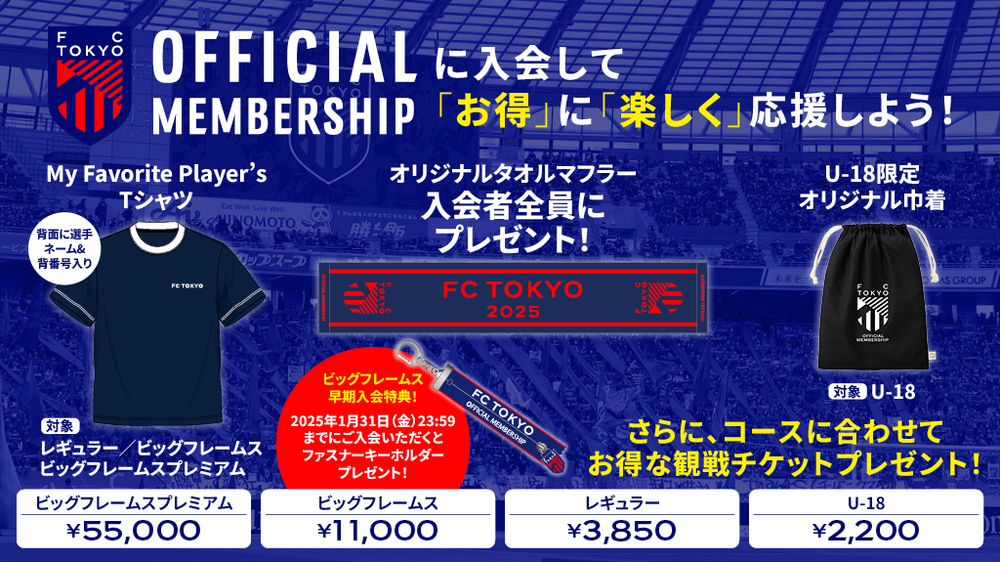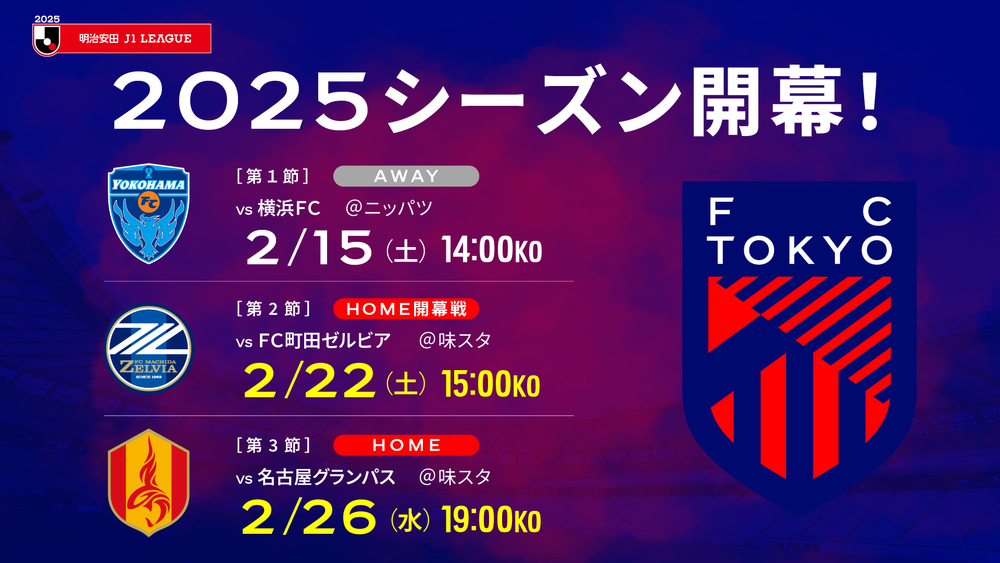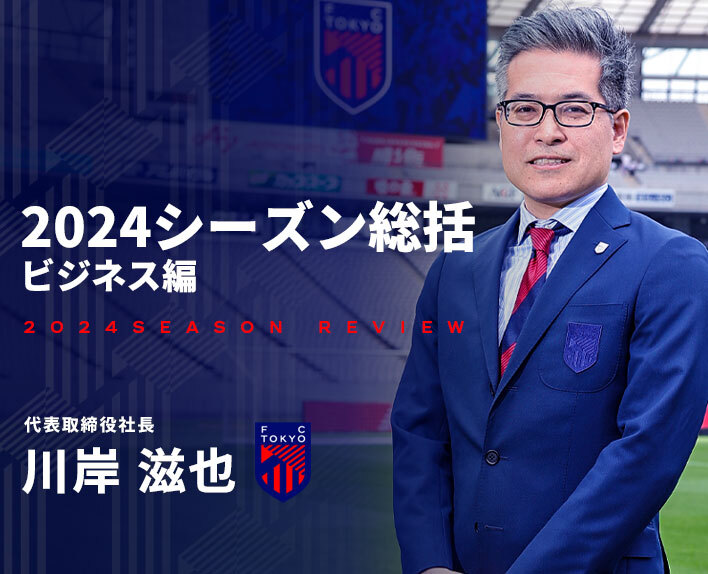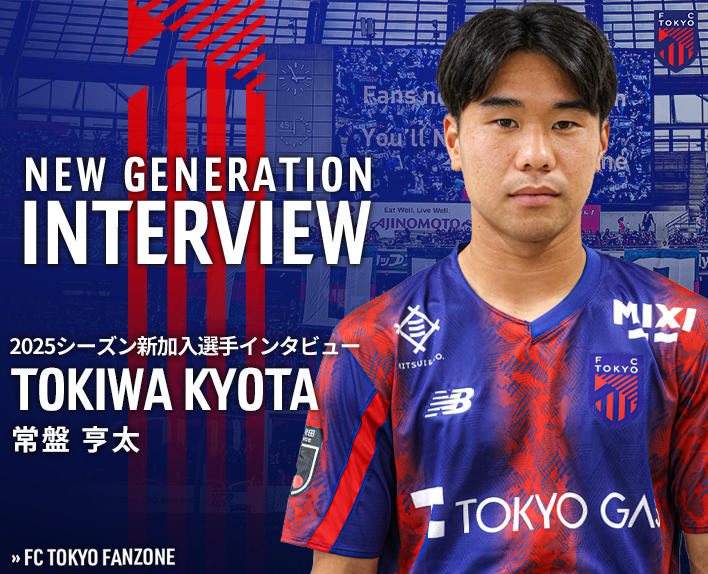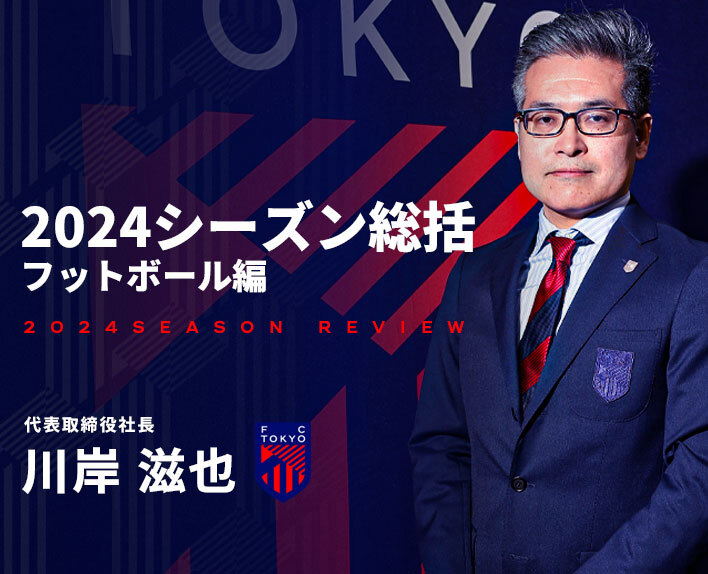FC Tokyo finished the 2024 season. While it was a year that saw numerous record-breaking figures in business aspects such as average attendance and annual revenue, the team also faced the reality of not being able to compete for titles. We interviewed President Shigeya Kawagishi to reflect on the year’s battles from both business and football perspectives regarding the club's current position. In the first part, we asked about the positive reception of the strong business performance. There were initiatives for the future woven in that were not visible through just the strong numbers.
Interview and Composition = Kei Sato (Freelance Writer)
Record Numbers and Commitment to the Future
──How are the business and football aspects of the 2024 season being summarized? First, let me ask about the business aspect.
A clear indicator is the attendance at league matches. For FC Tokyo, the highest number was 31,540 in the 2019 season. In the 2024 season, we were able to surpass that number. We had an average of over 33,000 people per match, with a total of 630,000 attendees. Despite not being able to win many matches at our home Ajinomoto Stadium, I am truly grateful to all the fans and supporters who came and cheered for us until the end. We were able to win all four home games held at the National Stadium, but I feel very regretful and sorry that we could not deliver many victories at Ajinomoto Stadium.
──How do you perceive the factors that contributed to the increase in spectator attendance?
1The 2019 season, where the average attendance exceeded 30,000, was a season of championship contention. The goal of surpassing that number was challenging for the club, and we did not think it could be achieved quickly. However, in the 2024 season, we were truly able to have many people attend and succeeded in that challenge. Of course, unlike the 2019 season, where all matches were held at Ajinomoto, the 2024 season hosted four matches at Japan National Stadium, with a total attendance of 210,000. Since the number of home league games has increased by two, we cannot simply compare the figures, but I believe it is significant that we were able to exceed the large target we set.
The benefits of holding matches at Japan National Stadium are as explained so far, as it allows us to reach a wider audience who may not be aware of FC Tokyo solely through Ajinomoto Stadium. While we want to continue to strategically utilize National Stadium alongside Ajinomoto as our main venue, we are also promoting it in the J.League as 'THE National DAY', where the interests of both the club and the J.League align. We aim to attract more fans and supporters to come.
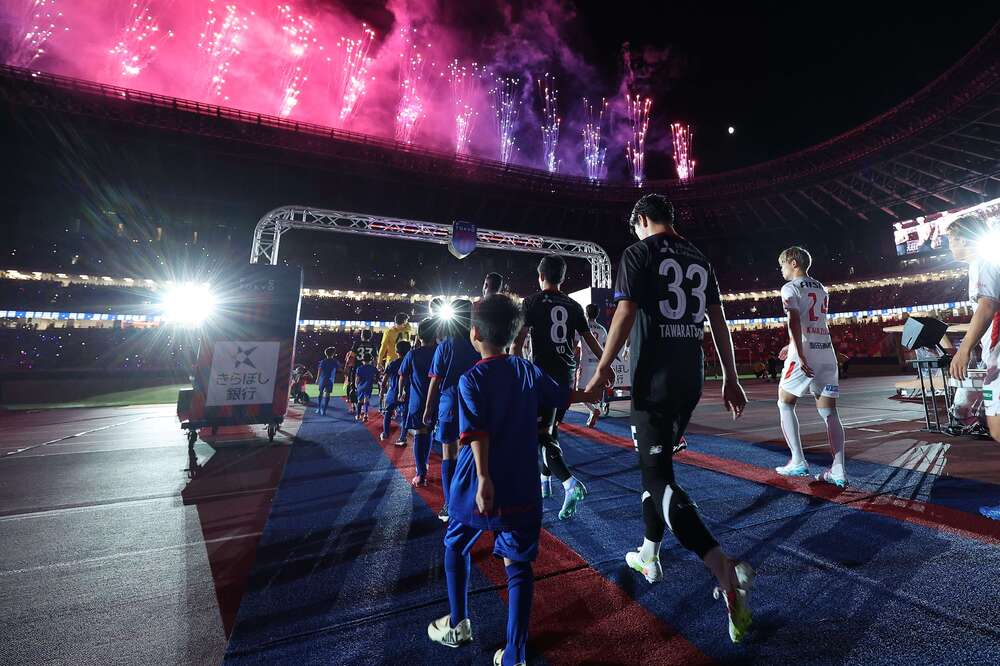
──It was mentioned that merchandise sales are also steadily increasing. What are your thoughts on this?
This season has been really good. It is possible that changing to a new emblem has had a positive effect. Of course, I don't think the new emblem has been accepted by everyone, but looking at the numbers, they are up compared to last season, and I feel that many people have engaged with us. Typically, merchandise is purchased by existing fans and supporters. From that perspective, I think there was a strong demand for switching to items with the new emblem. Additionally, I believe it was significant that we prepared merchandise at accessible price points, such as towel scarves, for the casual fans. As I mentioned in the last interview, I believe that expanding the merchandise stores at the stadium and ensuring we have sufficient stock has had a positive effect.
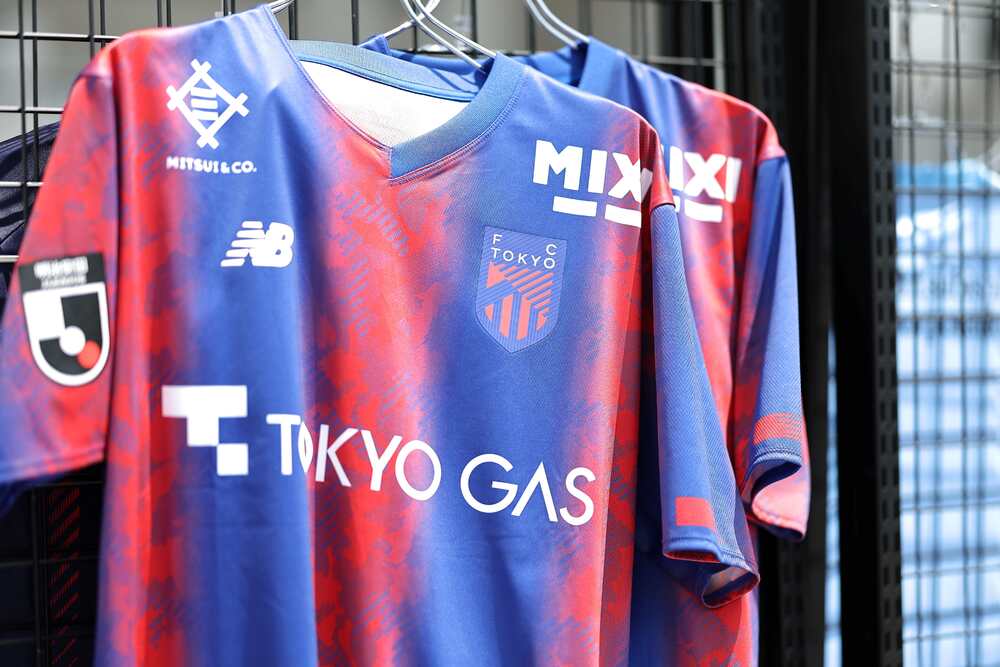
──Looking at the numbers from the past two years, merchandise sales increased from 400 million yen to 600 million yen. How will merchandise sales be for the 2024 season?
This year is expected to exceed 700 million yen. I believe that our efforts to not be afraid of the risks associated with inventory, which I also mentioned in the previous interview, have led to results. I think we will continue to build on this.
──As a new initiative, there was the sale of U-12 tickets. Please tell us again about its purpose and effects.
This season, we have introduced a ticket type called U-12 for certain seating categories. Analyzing that customer segment, we can see that the sales of tickets aimed at adults are also increasing in that category. In other words, the U-12 ticket has encouraged families to attend together. Although this analysis is based on data from the summer, further examination reveals that the average age of attendees has decreased by about one year. This is likely related to the relatively younger age of families attending with their elementary school children, in addition to the U-12 attendees. As the J-League has been around for 30 years and the average age of spectators has been rising, rejuvenating the fan base has become a challenge for both the league and the clubs. From that perspective, I believe this initiative has had a certain positive effect.
This initiative was undertaken from a fairly mid- to long-term perspective. When thinking about which club children will support, the influence of their parents is significant. From that standpoint, I believe it is important to create experiences where children think, "I came to like FC Tokyo because my parents took me to the stadium." By continuing such efforts, we want to build an environment where FC Tokyo fans and supporters can continue for 10, 20 years, passing down through generations. If we only consider immediate profits, increasing the number of elementary school customers by one versus increasing the number of adult customers by one results in a difference in so-called "customer unit price," so the focus would naturally be on adults. However, a mid- to long-term perspective is absolutely necessary, and looking 10, 20, 30 years ahead, we want to create a cycle that passes from parents to children, and from children to grandchildren. In that sense, we want to continue our approach toward family segments going forward.
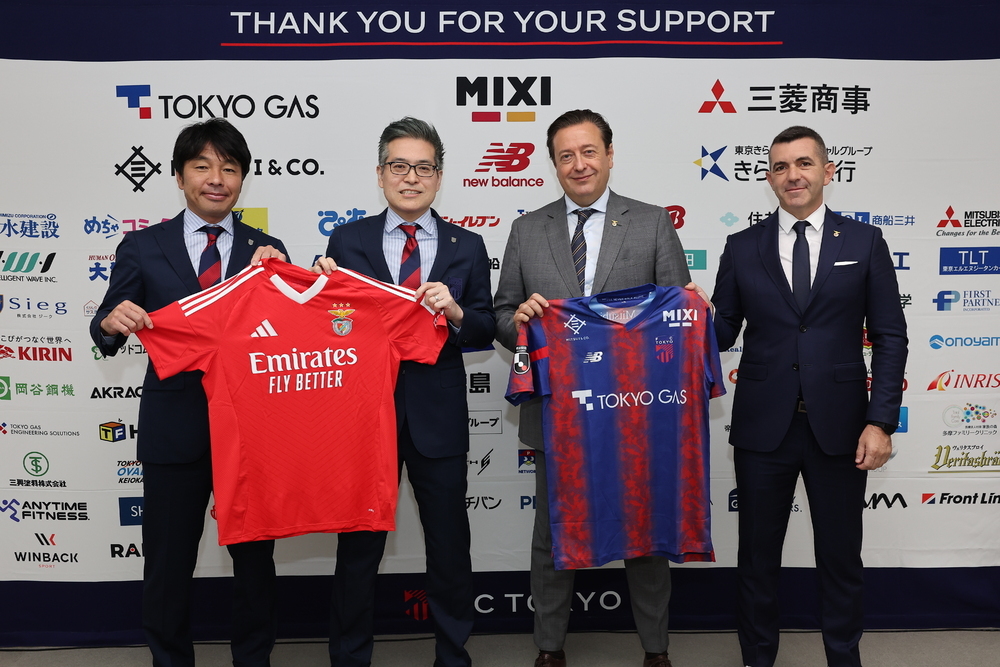
──As another initiative, there was a partnership with overseas clubs for the 2024 fiscal year. Could you explain the partnership with Legia Warsaw (Poland) and SL Benfica (Portugal)?
When it comes to partnerships with overseas clubs, it may seem like there is player exchange between clubs, but in reality, the ideal player profile required by each league and team is different, so it's not that simple. Legia Warsaw is focusing on a scouting partnership, exchanging scouting information that each party possesses. We seek evaluations as a second opinion on players from the EU that we are considering acquiring, and conversely, we provide information on Japanese players they are interested in. This partnership was realized because our needs aligned.
SL is a partnership related to player development. I believe the academy is one of FC Tokyo's strengths, but how to properly create career paths for players is a challenge not only for FC Tokyo but also for Japanese football as a whole, especially in the age group referred to as “post-youth.” Whether players go on to university or play in the J.League, even those promoted to the top team may choose to change categories. Securing match appearances for that generation is quite difficult. Sometimes, we create playing opportunities through loan transfers to J2 clubs, but that alone is not enough. We wanted to expand various possibilities to enhance the players' value. Among those options, the idea of having players develop overseas emerged as one choice, and since SL Benfica is one of the world's leading clubs in maximizing player value, our intentions aligned, leading to this partnership.
──What kind of results do you expect for the 2024 fiscal year's sales? It's before the financial results, but please share your current impressions.
Last year's sales were 5.929 billion yen, but this year we expect to significantly exceed that, and thanks to everyone, it seems that each business segment will achieve record numbers. The details are not yet finalized, so I hope to report this again as a management report after the financial results are announced.
The second part is here
